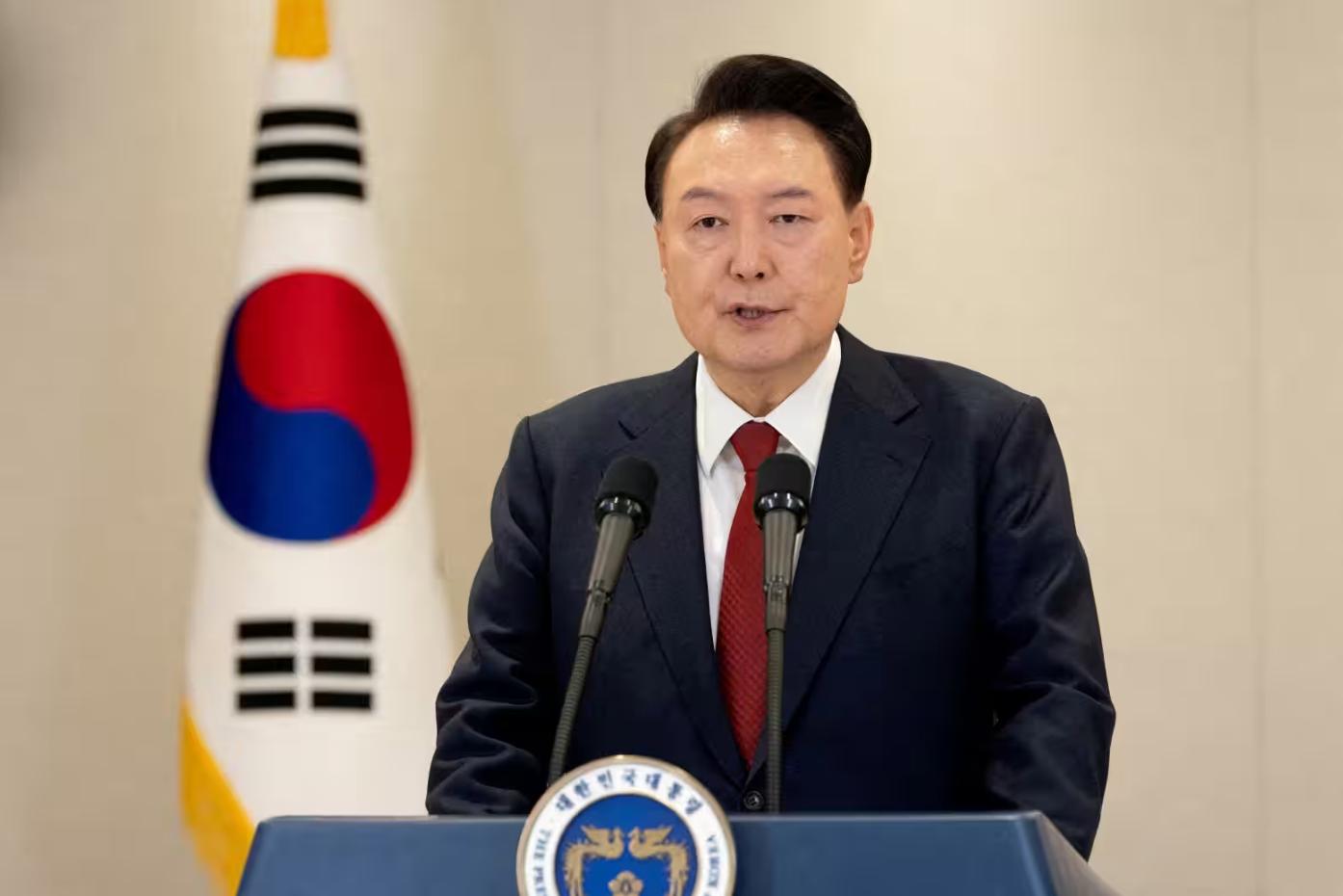
On December 31, 2024, an unprecedented event occurred in South Korea's constitutional history: The Seoul Western District Court issued an arrest warrant for the suspended President Yoon Suk Yeol on charges of instigating an internal rebellion and abuse of power, and simultaneously issued a search warrant for his presidential residence in Hannam-dong, Seoul. This decision quickly drew widespread attention both domestically and internationally, marking a further escalation of political turmoil in South Korea.
Yoon Suk Yeol, a South Korean politician who graduated from the Law School of Seoul National University, was elected as the 20th president of South Korea in May 2022. However, a series of decisions and actions during his tenure sparked widespread controversy, eventually leading to his impeachment and suspension by the National Assembly. On December 14, 2024, Yoon Suk Yeol's presidential duties were suspended, and the impeachment trial officially began. Subsequently, the High Prosecutors' Office for Public Officials' Crimes (Public Prosecutors' Office) initiated an in-depth investigation into him and summoned him three times for questioning, but received no response.
According to South Korea's Criminal Procedure Act, if a suspect refuses to cooperate with an investigation without a valid reason or is likely to do so, the investigation agency can apply to the court for an arrest warrant to conduct a compulsory investigation. As Yoon Suk Yeol refused to cooperate with the investigation, the Public Prosecutors' Office requested the arrest of Yoon Suk Yeol from the Seoul Western District Court. After reviewing the relevant evidence, the court officially approved the arrest warrant for Yoon Suk Yeol on December 31, and specified the charge as "leader of an internal rebellion". The arrest warrant is valid from the date of issuance until January 6, 2025.
Yoon Suk Yeol's legal team responded promptly after the arrest warrant was approved, claiming that it was illegal as the Public Prosecutor's Office should have applied for the warrant at the Seoul Central District Court instead of the Western District Court. Yoon's defense lawyer, Yoon Gak-geun, said they plan to apply to the Constitutional Court for a dispute over the authority to issue the arrest warrant and a provisional measure to suspend its effect. However, this legal dispute did not deter the Public Prosecutor's Office from its determination to execute the warrant. The head of the Public Prosecutor's Office stated on January 1 that they would arrest Yoon within the validity period of the warrant.
After the arrest warrant was issued, Yoon Suk Yeol sent a handwritten letter to the organizers of a support rally held near the presidential residence through his staff. In the letter, Yoon stated that South Korea is in danger due to threats to its sovereignty from both domestic and foreign forces and the actions of anti-state elements, and promised to fight alongside his supporters "to the end to defend this country." This statement further intensified the tense political atmosphere in South Korea.
Meanwhile, several of Yoon Suk Yeol's senior aides collectively resigned from their positions to Acting President and Deputy Prime Minister for Economic Affairs and Minister of Strategy and Finance Choi Sang-mook. This move was interpreted as a protest against Choi's appointment of the constitutional court judge recommended by the National Assembly. However, Choi said that now is the time to work together to stabilize people's livelihoods and national governance, and has no plan to accept the collective resignation of the presidential office's senior aides. Despite this, this series of personnel changes undoubtedly exacerbated the instability of the South Korean government.
The arrest of Yoon Suk Yeol has sparked a strong reaction in South Korean society. Multiple opinion polls show that the majority of respondents believe the Constitutional Court should pass the impeachment motion and that Yoon Suk Yeol should step down. This public opinion provides a certain social support for the arrest. However, there are also voices calling for transcending political conflicts and completing the presidential investigation and impeachment trial in a stable manner.
This arrest is not only a challenge to Yoon Suk Yeol personally but also a test of South Korea's constitutional system. As the first time in South Korea's constitutional history that an arrest warrant has been issued for a sitting president, its impact is far-reaching and complex. It not only concerns Yoon Suk Yeol's personal fate but also the stability and development of South Korean politics. Therefore, how to handle this event properly within the legal framework will test the wisdom and courage of South Korea's judicial institutions and political leaders.

Driven by the Trump administration's push to relax financial regulations and the recovery of investment banking business, the market value of the six major banks in the United States has cumulatively increased by approximately 600 billion US dollars by 2025.
Driven by the Trump administration's push to relax financia…
On Christmas evening, U.S. President Trump posted on social…
According to multiple foreign media reports, the recent fin…
The middle class, once regarded as the cornerstone of Ameri…
On December 19th local time, the US military launched a lar…
The Boxing Day sunshine should have cast a false glow of pr…